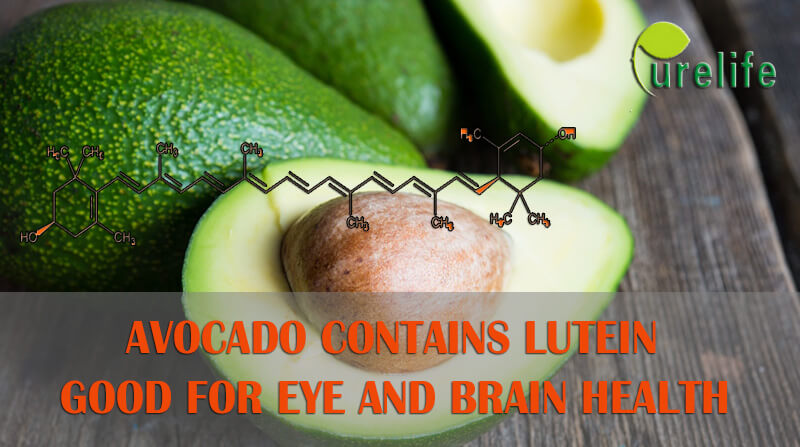Avocado is good for eye and brain health
Avocado is a green, pear-shaped fruit often called an “alligator pear.” It is loaded with healthy fats, fiber and various important nutrients. These days, the avocado has become an incredibly popular food among health-conscious individuals, although most consumers think avocado is “tasteless”. It is undeniable that avocado contains a variety of nutrients such as vitamins, minerals, proteins, and fatty acids. Current clinical evidence has proved that avocado is good for eye and brain health.

A new study published in Nutrients magazine shows that avocado helps increase the content of lutein in serum and eye macula, and plays an important role in eye health and cognitive health. The main reason is related to lutein that contained in avocado. Eye and brain selectively absorb carotenoids, while both of eye and brain absorb the lutein, a kind of carotenoids. In 1994, Harvard researchers first reported a link between lutein and eye health. Daily intake of carotenoid rich foods, especially dark green vegetables such as spinach, significantly reduced age-related macular degeneration (AMD).
Researchers at the Center for Human Aging Nutrition Research at Tufts University also said: the increase in macular pigment density (MPD) helps improve memory and problem-solving ability, so avocado can also help prevent cognitive decline in older consumers. In addition, a number of primate, child, middle-aged and elderly studies have shown the important links between lutein and brain health. Recent studies have shown that 60 % of total carotenoids in children’s brain tissues are lutein, and related data also shown that lutein accounts for only 12 % of carotenoids in the diet, therefore, brain has a significant selective absorption of lutein.
Avocado with Lutein for brain health research
The study was a randomized, controlled clinical trial. 20 healthy men and women were randomly grouped together to take avocados and potatoes once a day for six months. An avocado provides about 0.5 mg of lutein daily.
After 6 months, compared with 15 % in the control group, the content of lutein in serum of the avocado group increased by 25 %. Furthermore, only avocado subjects significantly increased their macular pigment density (MPD) after 6 months.
The results also showed the improvements in cognitive performance in all subjects, such as memory and spatial working memory, which the researchers believe may be due to learning errors (increased familiarity with the tests). At the same time, only avocado group’s sustained attention was improved significantly. The researchers also found that the increase of MPD in the avocado group was related to the improvement of working memory and problem solving efficiency.
Dietary supplements that contains avocado helps improve cognitive function, and this improvement helps increase macular pigment density (MPD), which is a biomarker of lutein content in brain tissues. The University of Tufts has previously conducted relevant studies: intake of 12 mg lutein and 0.5 mg zeaxanthin supplements daily for 4 months has contributed to a significant increase in MPD. Other ingredients in avocados can effectively improve the content of lutein, which is most likely monounsaturated fatty acids.


